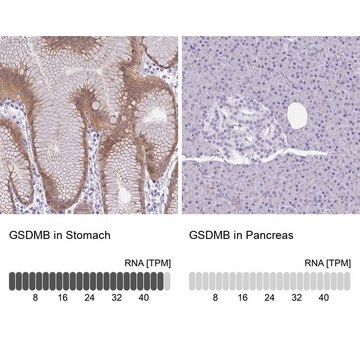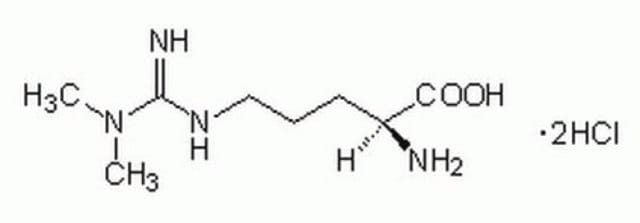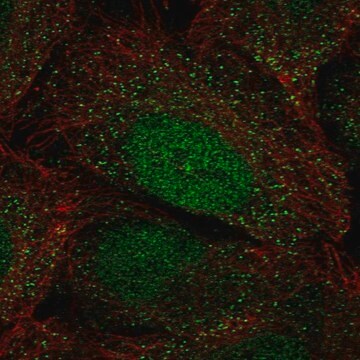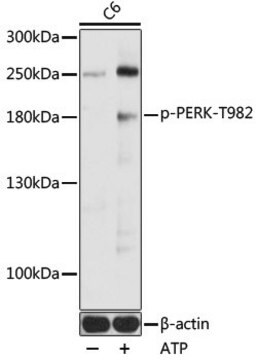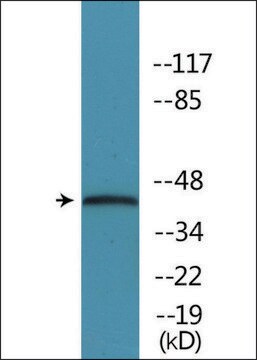SML3459
RBPJ Inhibitor-1
≥98% (HPLC)
Synonym(s):
2-(2-Fluorophenoxy)-4-(1-methyl-1H-pyrazol-5-yl)-benzamide, RIN1
Sign Into View Organizational & Contract Pricing
All Photos(1)
About This Item
Empirical Formula (Hill Notation):
C17H14FN3O2
CAS Number:
Molecular Weight:
311.31
MDL number:
UNSPSC Code:
12352200
NACRES:
NA.77
Recommended Products
Quality Level
Assay
≥98% (HPLC)
form
powder
color
white to beige
solubility
DMSO: 2 mg/mL, clear
storage temp.
-10 to -25°C
Biochem/physiol Actions
RBPJ Inhibitor-1 (RIN1) is a selective inhibitor against the transcription factor RBPJ. RIN1 blocks RBPJ-SHARP transcriptional repressor complex formation, inhibits RBPJ-mediated Notch intracellular domain (NICD) transcription activity (IC50/Emax = 180 nM/82% and 190 nM/88% using Notch2 ICD or Notch3 ICD, respectively), as well as NICD-independent transcription activity of RBPJ-VP16 (IC50 = 200 nM, Emax = 81%). RIN1 inhibits Notch-driven cancer proliferation (by ~70% post 4-day 10 μM RIN1 treatment; Jurkat) and promotes muscle differentiation (0.6 μM for 4 days; C2C12 myoblasts).
Storage Class Code
11 - Combustible Solids
WGK
WGK 3
Flash Point(F)
Not applicable
Flash Point(C)
Not applicable
Certificates of Analysis (COA)
Search for Certificates of Analysis (COA) by entering the products Lot/Batch Number. Lot and Batch Numbers can be found on a product’s label following the words ‘Lot’ or ‘Batch’.
Already Own This Product?
Find documentation for the products that you have recently purchased in the Document Library.
Wentao Liu et al.
Cell death & disease, 13(4), 295-295 (2022-04-04)
Renal cell carcinoma (RCC) is a kind of malignant tumor originating from the renal tubular epithelium. Approximately 30% of patients with renal cancer are found to have metastasis when first diagnosed. Exploring other effective treatment methods in addition to surgery
Cecilia Hurtado et al.
Scientific reports, 9(1), 10811-10811 (2019-07-28)
NOTCH plays a pivotal role during normal development and in congenital disorders and cancer. γ-secretase inhibitors are commonly used to probe NOTCH function, but also block processing of numerous other proteins. We discovered a new class of small molecule inhibitor
Rani Ojha et al.
Developmental cell, 57(2), 260-276 (2022-01-26)
Metabolic flexibility is a hallmark of many cancers where mitochondrial respiration is critically involved, but the molecular underpinning of mitochondrial control of cancer metabolic reprogramming is poorly understood. Here, we show that reverse electron transfer (RET) through respiratory chain complex
Our team of scientists has experience in all areas of research including Life Science, Material Science, Chemical Synthesis, Chromatography, Analytical and many others.
Contact Technical Service



